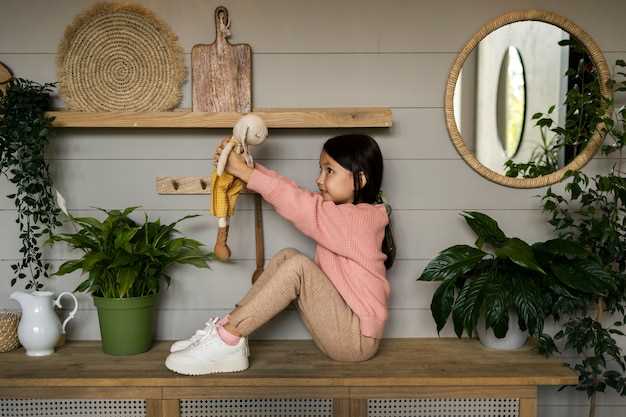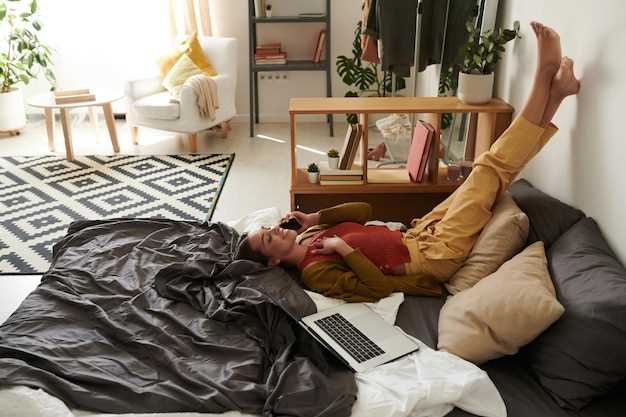
In a society that constantly bombards us with an overwhelming array of choices and possessions, it can be easy to lose sight of what truly matters. We find ourselves surrounded by a cacophony of material goods, each vying for our attention and promising to enhance our lives. Yet, amidst this chaos, there is a growing movement that seeks solace in simplicity, embracing the concept of minimalism.
Minimalism is not merely about getting rid of physical clutter; it is a mindset, a way of life that encourages us to focus on what is truly essential. It is about stripping away the excess and uncovering the beauty in simplicity. By embracing minimalism, we can create a sense of calm and clarity in our urban spaces, allowing us to fully appreciate the things that truly bring us joy.
Living in an urban environment presents its own unique challenges when it comes to embracing minimalism. The fast-paced nature of city life often leaves us feeling overwhelmed and disconnected from our surroundings. However, by adopting a minimalist approach to our urban spaces, we can transform them into havens of tranquility and purpose.
So, how can we begin to declutter our urban spaces and embrace minimalism in a world that seems to celebrate excess? In this article, we will explore practical strategies and creative solutions that will help you create a minimalist oasis in the midst of a maximalist world. From clever storage solutions to mindful consumption habits, we will guide you on a journey towards a more intentional and fulfilling urban lifestyle.
Understanding the Benefits of Minimalism
Exploring the advantages of adopting a minimalist lifestyle can bring about a profound transformation in the way we perceive and interact with our surroundings. By simplifying our lives and reducing the excess, we can experience a sense of freedom, clarity, and tranquility.
One of the key benefits of minimalism is the ability to focus on what truly matters. In a world filled with distractions and constant stimulation, embracing minimalism allows us to prioritize our time, energy, and resources on the things that bring us joy and fulfillment. By eliminating the unnecessary clutter, we create space for the meaningful experiences and relationships that enrich our lives.
Minimalism also promotes mindfulness and intentionality. By intentionally curating our possessions and surroundings, we become more aware of our consumption habits and the impact they have on the environment. This heightened consciousness encourages us to make more sustainable choices and reduce our carbon footprint, contributing to a greener and more eco-friendly world.
Furthermore, minimalism fosters a sense of inner peace and mental clarity. When our physical space is decluttered and organized, our minds also become less cluttered. By eliminating the excess noise and distractions, we create a calm and serene environment that allows us to focus, think more clearly, and be more productive. This mental clarity can lead to increased creativity, improved decision-making, and a greater sense of overall well-being.
Lastly, minimalism can have a positive impact on our financial well-being. By adopting a less materialistic mindset and reducing our desire for unnecessary possessions, we can save money and live more frugally. This financial freedom allows us to pursue our passions, invest in experiences rather than things, and ultimately lead a more fulfilling and purposeful life.
- Focus on what truly matters
- Promotes mindfulness and intentionality
- Fosters inner peace and mental clarity
- Positive impact on financial well-being
By understanding and embracing the benefits of minimalism, we can create a harmonious balance between our urban spaces and our inner selves, leading to a more meaningful and fulfilling life.
Assessing Your Urban Space: Identifying Clutter Hotspots
When it comes to creating a minimalist environment in a bustling city, it’s essential to assess your urban space and identify the areas that tend to accumulate clutter. By understanding the specific hotspots where clutter tends to accumulate, you can effectively declutter and create a more organized and serene living space.
Recognizing Problem Areas
One of the first steps in assessing your urban space is recognizing the problem areas that contribute to clutter. These areas may include entryways, countertops, closets, and storage spaces. By identifying these hotspots, you can prioritize your decluttering efforts and develop strategies to keep them organized in the future.
Understanding the Impact of Clutter
Clutter not only affects the physical appearance of your urban space but also has a significant impact on your mental well-being. It can create a sense of overwhelm, increase stress levels, and hinder productivity. By understanding the negative effects of clutter, you can motivate yourself to take action and create a more minimalist and peaceful living environment.
Identifying clutter hotspots in your urban space is the first step towards embracing minimalism and creating a more organized living space. By recognizing problem areas and understanding the impact of clutter, you can effectively declutter and transform your urban space into a serene oasis amidst the maximalist world around you.
The Art of Letting Go: Decluttering Strategies for City Dwellers
In today’s fast-paced urban environment, finding peace and tranquility amidst the chaos can be a challenge. One way to create a sense of calm and order in your urban space is by decluttering. Decluttering is not just about getting rid of physical possessions, but also about letting go of the emotional attachments that often come with them. In this section, we will explore some effective strategies for decluttering your urban dwelling and creating a more minimalist and organized living environment.
1. Prioritize what truly matters: In a world filled with endless distractions and consumerism, it’s important to identify what truly adds value to your life. Take a step back and evaluate your possessions, focusing on the items that bring you joy, serve a practical purpose, or hold sentimental value. By prioritizing what truly matters, you can let go of the excess and create a space that reflects your true priorities.
2. Practice the one-in, one-out rule: To prevent clutter from accumulating in your urban space, adopt the one-in, one-out rule. For every new item you bring into your home, commit to getting rid of one item. This simple practice ensures that your space remains clutter-free and encourages mindful consumption.
3. Embrace digital minimalism: In today’s digital age, physical clutter is not the only challenge we face. Digital clutter, such as excessive emails, files, and notifications, can also contribute to a sense of overwhelm. Take the time to declutter your digital life by organizing your files, unsubscribing from unnecessary emails, and minimizing your online presence. Embracing digital minimalism can help create a more focused and serene urban living experience.
4. Let go of guilt: Many urban dwellers struggle with letting go of items due to guilt or a fear of wasting resources. However, holding onto things that no longer serve a purpose only adds to the clutter and prevents you from creating a harmonious living space. Remember that letting go does not mean you are being wasteful; it means you are making room for new experiences and allowing someone else to benefit from the items you no longer need.
5. Create designated spaces: In a small urban space, it’s crucial to maximize every inch of available storage. Create designated spaces for different categories of items, such as clothing, books, and kitchenware. Utilize storage solutions like shelves, baskets, and organizers to keep everything in its rightful place. By creating designated spaces, you can easily find what you need and maintain a clutter-free environment.
In conclusion, decluttering your urban space is not just about creating a visually appealing environment, but also about cultivating a sense of peace and clarity in your daily life. By embracing the art of letting go and implementing these decluttering strategies, you can transform your urban dwelling into a sanctuary of simplicity and serenity.
Maximizing Storage Solutions: Organizing Your Minimalist Space
In a world that often values excess and clutter, finding effective storage solutions is essential for maintaining a minimalist lifestyle. By optimizing your storage options, you can create a well-organized and clutter-free environment that aligns with your minimalist principles.
When it comes to organizing your minimalist space, it’s important to think creatively and make the most of every available inch. Utilizing vertical space, such as wall-mounted shelves or hanging organizers, can help maximize storage capacity without sacrificing floor space. Additionally, incorporating multi-functional furniture, like ottomans with hidden storage compartments or beds with built-in drawers, can provide hidden storage solutions.
Another key aspect of organizing your minimalist space is decluttering and prioritizing your belongings. Take the time to assess each item you own and determine its value and usefulness in your life. Consider donating or selling items that no longer serve a purpose, and focus on keeping only the essentials. By reducing the number of possessions you have, you can create a more streamlined and efficient storage system.
Investing in storage containers and organizers can also greatly contribute to the organization of your minimalist space. Clear plastic bins or labeled boxes can help categorize and store items, making it easier to locate them when needed. Drawer dividers and closet organizers can also help maximize space and keep belongings neatly arranged.
Furthermore, implementing a regular cleaning and maintenance routine is crucial for maintaining an organized minimalist space. Set aside time each week to declutter and reorganize, ensuring that everything has its designated place. By consistently practicing these habits, you can prevent clutter from accumulating and maintain a harmonious and clutter-free living environment.
In conclusion, maximizing storage solutions is essential for organizing your minimalist space. By utilizing creative storage options, decluttering and prioritizing your belongings, investing in storage containers and organizers, and maintaining a regular cleaning routine, you can create a well-organized and clutter-free environment that aligns with your minimalist principles.
Curating a Minimalist Aesthetic: Design Tips for Urban Living
Creating a visually appealing and clutter-free living space in the midst of a bustling urban environment can be a challenging task. However, by curating a minimalist aesthetic, you can transform your urban dwelling into a serene and stylish sanctuary. In this section, we will explore some design tips that will help you achieve a minimalist look and feel in your urban living space.
1. Simplify Your Color Palette
When curating a minimalist aesthetic, it is essential to start with a simple and cohesive color palette. Opt for neutral tones such as whites, grays, and earthy hues to create a calm and harmonious atmosphere. Avoid using bold and vibrant colors that can overwhelm the space and detract from the minimalist vibe.
2. Streamline Furniture and Decor

One of the key principles of minimalist design is to eliminate excess and focus on essential elements. Choose furniture pieces with clean lines and a simple design. Avoid cluttering your space with unnecessary decorative items and instead, opt for a few carefully selected pieces that add both functionality and visual appeal.
- Invest in multi-functional furniture that serves multiple purposes, such as storage ottomans or coffee tables with built-in shelves.
- Consider incorporating minimalist wall art or sculptures that make a statement without overwhelming the space.
- Use plants strategically to bring a touch of nature into your urban living space, but keep it minimal by selecting a few well-placed potted plants.
3. Embrace Natural Light
Maximize the use of natural light in your urban living space to create an airy and open atmosphere. Avoid heavy curtains or blinds that block the light and instead, opt for sheer or light-colored window treatments that allow sunlight to filter through. Additionally, strategically place mirrors to reflect natural light and create an illusion of a larger space.
By following these design tips, you can curate a minimalist aesthetic in your urban living space, creating a tranquil and visually pleasing environment amidst the hustle and bustle of city life.
Maintaining Minimalism: Strategies for Preventing Future Clutter
In a world that often encourages excess and accumulation, it can be challenging to maintain a minimalist lifestyle. However, by implementing effective strategies, you can prevent future clutter and ensure that your urban space remains organized and clutter-free.
1. Mindful Consumption

One of the key strategies for maintaining minimalism is practicing mindful consumption. This involves being intentional about the items you bring into your space. Before making a purchase, ask yourself if the item is truly necessary and if it aligns with your minimalist values. By being mindful of your consumption habits, you can prevent unnecessary clutter from entering your urban space.
2. Regular Decluttering Sessions
Regular decluttering sessions are essential for preventing future clutter. Set aside dedicated time to assess your belongings and identify items that no longer serve a purpose or bring you joy. By regularly decluttering, you can ensure that your urban space remains organized and free from unnecessary items.
During these decluttering sessions, consider implementing the “one in, one out” rule. For every new item you bring into your space, remove an existing item. This rule helps maintain balance and prevents accumulation.
Additionally, consider donating or selling items that are in good condition but no longer needed. This not only helps prevent clutter but also allows someone else to benefit from the items you no longer use.
By practicing mindful consumption and regularly decluttering, you can maintain a minimalist lifestyle and prevent future clutter in your urban space. These strategies will help you create a peaceful and organized environment that aligns with your minimalist values.